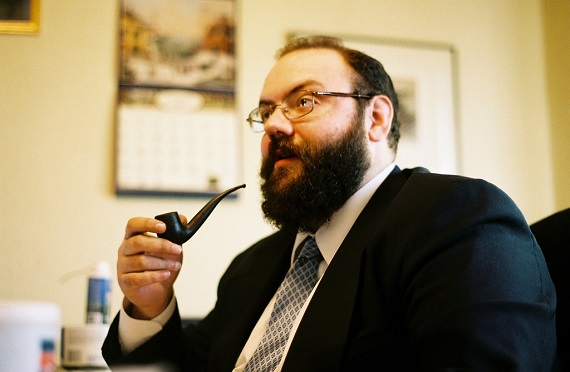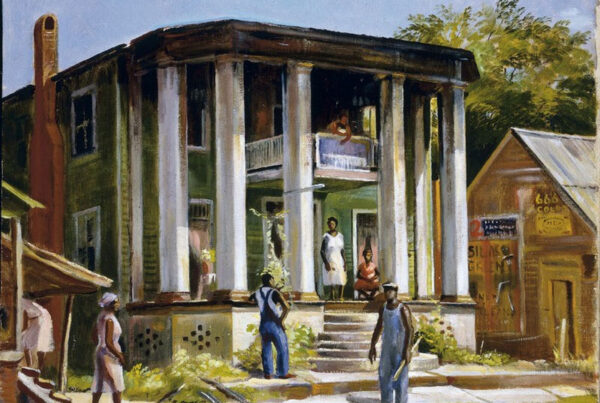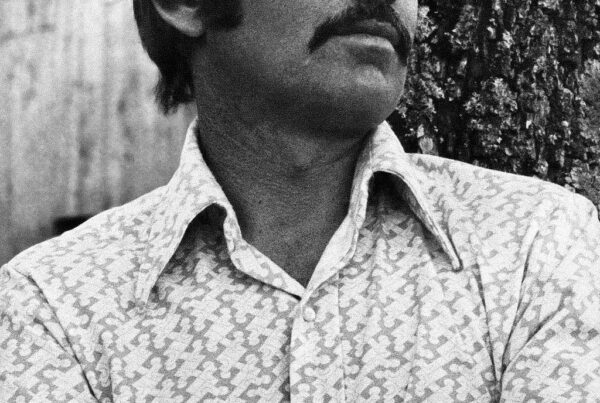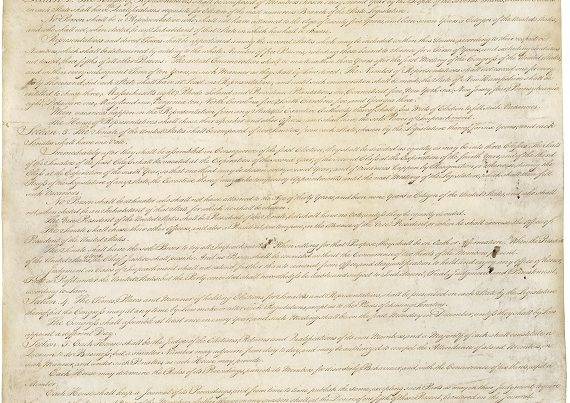
A week ago Sunday—Easter Sunday, April 21—Aaron D. Wolf, Executive Editor of Chronicles Magazine, passed away. After what had been for him, his wife Lorrie, and his family one of the best weeks of his life, he was struck down on the Day of Resurrection by a sudden and massive heart attack: Our Lord had called Aaron unto Him.
I got to know Aaron over the past couple of years because I had submitted several articles to him that were then published in Chronicles. We became friends. I knew of his fine writing which appeared in every issue of the magazine, always adding thoughtful insight to each topic he examined.
I also knew of his love for and defense of the heritage and history of the South. In 2018 he had accepted an invitation to speak at The Abbeville Institute, where he offered a superb presentation. Abbeville has published the text of the presentation on the institute’s Web site. And there is also a You Tube video of Aaron’s splendid remarks. I urge you to watch the video and read the transcription.
Aaron demonstrated both a profound understanding of Southern history and a deep appreciation of the legacy left to us by our ancestors. Like another fallen “Chevalier sans Peur,” the late Mel Bradford, he knew that the key to our future, to our survival as a people, was “remembering who we are,” continually delving into that wellspring—that rich heritage stretching back millennia—that for centuries has defined us and given us our character. In that sense, remembering who we are is the ultimate act of piety, of pietas, and a recognition that we are part of that history and culture that comes to us from our forefathers. If we turn our backs on it, if we deny our history, we are thrust out into the darkness of barbarism and despair, and end up by denying our own essential personhood.
Aaron understood that, and he took that appreciation not only to his stellar work at Chronicles, which, along with its editor Chilton Williamson Jr., helped make it the premiere magazine defending and advancing the principles and reality of our Western Christian civilization, but to his everyday pursuits, his role as a devoted family man, and his belief in God.
And now Our Lord has called Aaron to Himself, and on Easter, the Day of Resurrection.
My prayers are for him, and for his wife Lorrie and family, and for the work of the enterprise, Chronicles magazine, for which he so tirelessly labored and through which he helped define the response that every devout Christian must make to the cunning temptations and snares of the modern and soulless world in which we live: “Non possumus!” “We cannot—we will not succumb to your tawdry enticements!”
Rather, we—our small remnant—sing the hymn of ultimate victory and praise, chanted at the coronation of the Holy Roman Emperor Charlemagne in 800 A.D., the Laudes Regiae: “Christus vincit! Christus regnat! Christus imperat!” – Christ conquers! Christ reigns! Christ commands!
In many ways, they were Aaron’s watch words.
There is a GoFundMe page for Aaron’s wife and children, if you would like to assist them in this time of need.
The last issue of Chronicles fully edited by Aaron was the May 2019 number, and I am honored that it featured a major review by Professor Donald Livingston of my book, The Land We Love: The South and Its Heritage (Scuppernong Press, 2018; hardback). Dr. Livingston is a professor emeritus of philosophy at Emory University and internationally known author, as well as co-founder of The Abbeville Institute. His review is found at pages 17-18 of the print version of the May issue, and is also available online for subscribers.
I offer the review here, but I also entreat you to subscribe to the print magazine which, as I say, is the major print publication in today’s dark world defending the two millennia of our culture and civilization against the barbarians.
Faithful Son
By Donald Livingston
Boyd Cathey is an 11th generation Carolina Tar Heel who was mentored by and worked with Russell Kirk. The Land We Love: The South and Its Heritage is written reverentially, just as one might reflect on the memory of one’s mother. For the South is not just any region of the United States, like the Midwest, the Southwest, or even New England. From 1776 to 1860 the South was at the core of American identity. In the first 72 years under the Constitution, only five presidents were elected from the North. None served two terms; whereas five Southern presidents served two terms. All the territory beyond the original 13 states was acquired by Southern presidents.
As of 1860, the South was America: Washington, Jefferson, Madison, Monroe, Jackson, Calhoun, Clay, the Louisiana Purchase, the Alamo. But this Jeffersonian America was challenged with the formation of the Republican Party in 1854. It was a revolutionary party and a sectional party. Its goal was to consolidate the states into a centralized regime of crony capitalism ruled by the emerging New York-Chicago industrial axis. This aim stood in stark contrast to the America that Southerners did so much to create and sustain. So, they seceded and took the Founders’ constitution with them, word for word, except for a few reforms to prevent crony capitalism and to strengthen state sovereignty.
Unlike other regions, the South was once an independent country. It suffered defeat in one of the bloodiest wars of the 19th century and endured the humiliation of military occupation and plunder. Out of this Golgotha came a tragic view of human life and human nature that immunized the best of the Southern people against the ideological enthusiasms of the age.
In time North and South would be reunited, and the War would be seen as a battle over a contested American identity that existed among the Founders themselves. This gave the Confederacy an honorable heritage. Southern heroes such as Lee became models for emulation by all Americans. President Eisenhower kept a portrait of Lee in the Oval Office throughout his two terms.
But that America is as gone with the wind as the Old South itself.
Written from the aforementioned perspective, this book is a collection of short essays that appeared in various journals from the 1980’s into 2018, the period in which the Cultural Marxist understanding of America came into its own. The chapters cover a great variety of topics: Southern Founders; the attack on Confederate monuments; Southern writers, religion, and character; secession movements; the South in film; the Southern Poverty Law Center; the South and Christian civilization; race relations; and the baneful character of ideology. The essays are short, eloquently written, and—since they range over a variety of characters, events, and topics—continually stimulating.
Readers of this book will come away with an understanding of Southern virtues, but they will also wonder whether the tradition that produced those virtues still exists. Have most Southerners been transformed into a nomadic, Sunbelted mass of deracinated Americans wearing Ray-Bans? It might seem so. In recent years, those leading attacks on Southern monuments have been Southern mayors, city councils, governors, and prominent leaders of Southern churches and denominations.
Today, two years after the tragic events of Charlottesville, one is hard-pressed to find a state or federal political leader willing to defend the Lee monument there, though it still stands by court order. A South whose leadership cannot (or will not) say a good word about Lee is in serious decline, if not already dead. Have Southerners lost their immunity to ideology? Have they internalized the Cultural Marxist mantra that America is structurally white supremacist, sexist, and homophobic to the point that they are morally disarmed by the dreaded charge of racism? The question applies not only to leaders but to rank-and-file Southerners as well, who failed to assemble en masse to protest the desecration and tearing down of their monuments.
Traditions do die, and usually with a whimper. Boyd Cathey is aware of this, and running throughout this book are reflections on the Christian virtue of hope as well as two essays that encourage recovery: “The Vigil of the Nativity: Reflections on the Hope that Came to Us Two Millennia Ago,” and a substantial final meditation, “Reflections on the Future.”
[The Land We Love: The South and Its Heritage, by Boyd Cathey (Wake Forest, NC: Scuppernong Press) 308 pp., $28.00]
This review appears in the May 2019 print issue, pages 17-18.






